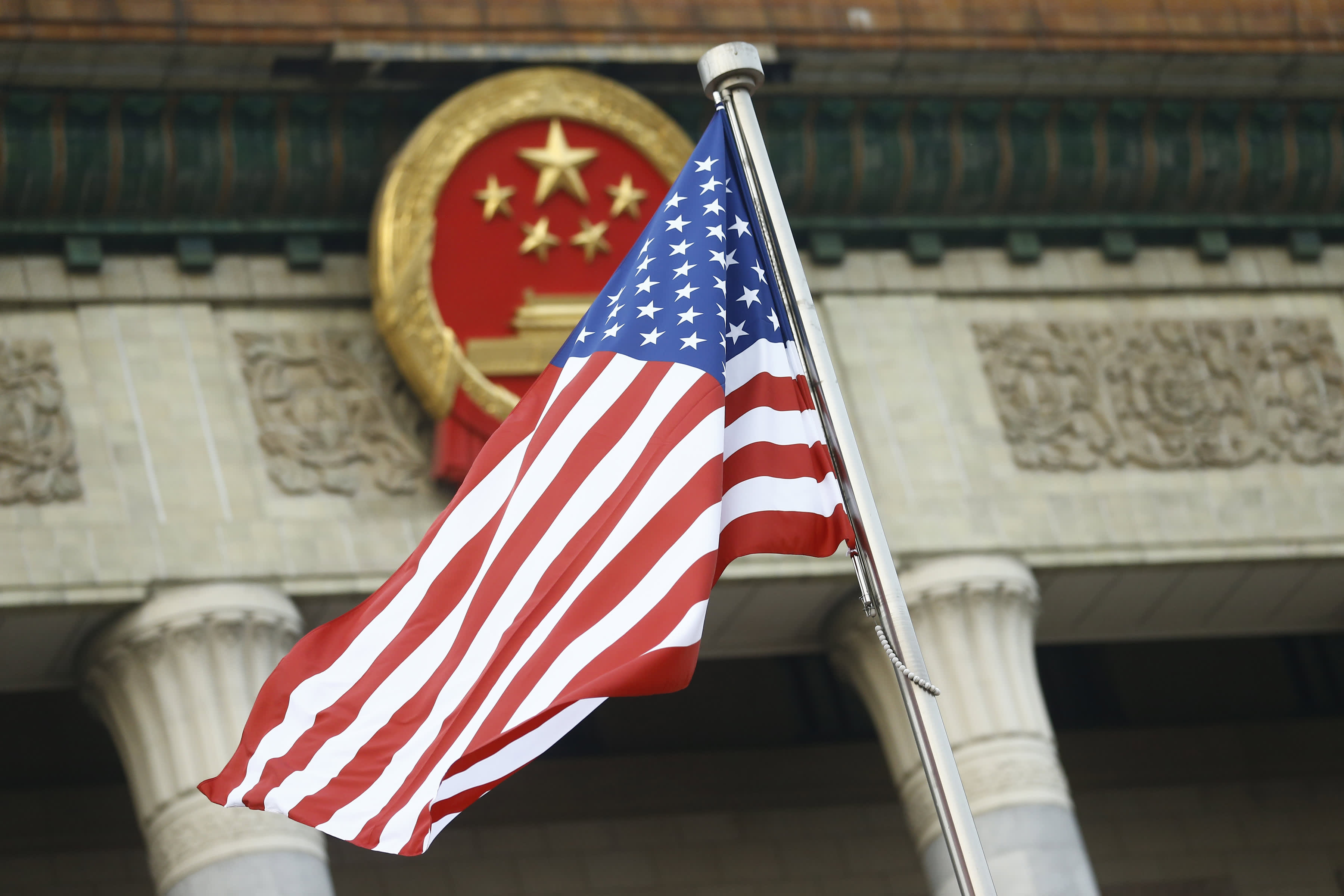
The U.S. flag flies at a welcoming ceremony between Chinese President Xi Jinping and U.S. President Donald Trump in 2017.
Getty Images News | Getty Images
"We are now entering into a period of great power rivalry. The outcome is unclear, but it is critical that we stabilize the system."
That was the warning on Thursday from Singapore's Heng Swee Keat, the man set to be the city-state's next prime minister. China's rapid ascent over the past decade, he said, has caused a clear shift in global politics, and those changes need to be addressed.
The Singaporean deputy prime minister's sentiment was echoed by other political figures and experts gathered in Tokyo for a conference on the future of the region. At the event, which was sponsored by Japanese media group Nikkei, one of the repeated messages was meant for both Washington and Beijing: The world's economic and military powerhouses need to find ways to coexist before things spiral out of control.
The U.S. and China are increasingly jostling for influence in Asia.
China is the region's biggest economy and is boldly pursuing its geopolitical interests. That includes asserting territorial claims with increasing military muscle in the South China Sea and championing its Belt and Road Initiative — a massive investment program that aims to create infrastructure and transportation networks linking China to much of the world.
The U.S., meanwhile, maintains decades-old security alliances with Japan and South Korea. And, under President Donald Trump, Washington is now taking a more offensive economic approach to Beijing.
"U.S.-China trade tension is a source of concern for everybody in the region," Yoichi Suzuki, an adjunct fellow at the Japan Institute of International Affairs and former chief negotiator for the country's free trade agreement with the European Union, said Friday.
"It is not only affecting these two countries but it's affecting everybody," he told CNBC's "Squawk Box." As you see, the stock market is going down, the economy is slowing. So we need to see a solution as soon as possible."
Singapore's Heng said that competition between the U.S. and China can't be avoided and they each have legitimate concerns, but that is all the more reason for both to make compromises and "accept new realities" to manage relations.
"The U.S. has to accept that it has no better option but to work with China because trying to contain it will result in worse outcomes," he said.
'Realize the seriousness'
China, meanwhile, "needs to demonstrate that its peaceful rise will indeed benefit the rest of the world, including the U.S., and be prepared to shoulder additional international responsibilities," he said.
Jia Qingguo, a professor at Peking University's School of International Studies, said the current poor state of U.S-China relations begs the question of whether the future will be characterized by permanent tensions.
"Personally, I think we are at a moment ... where we have to decide how to manage our relationship to avoid a confrontational new cold war," he said Thursday at a panel discussion titled "Deepening U.S.-China Conflict and Asia."
"At the moment it's not very optimistic," he said.
Malaysian Prime Minister Mahathir Mohamad in a speech to the conference openly worried about possible military conflict arising out of U.S. efforts to project naval power in the South China Sea in response to China's increasing presence.
The correct approach, he said in a post-address question and answer session, is to consider that China has transformed considerably over the decades since the rule of Mao Zedong. The country, he said, has moved toward more openness through engagement by the outside world rather than by military and economic threats.
"So, in a way, we have influenced China to change" by showing it the benefits of open trade, he said. "And that has made tremendous progress."
But Akihiko Tanaka, president of the National Graduate Institute for Policy Studies in Japan, cautioned that competition between the U.S. and China in four areas — trade, technology, political values and security — is only set to expand in the coming months and years.
"We need to realize the seriousness of that," he said at the panel.
Watch: Who owns the South China Sea?
from Top News & Analysis https://cnb.cx/2KleLMu
No comments:
Post a Comment